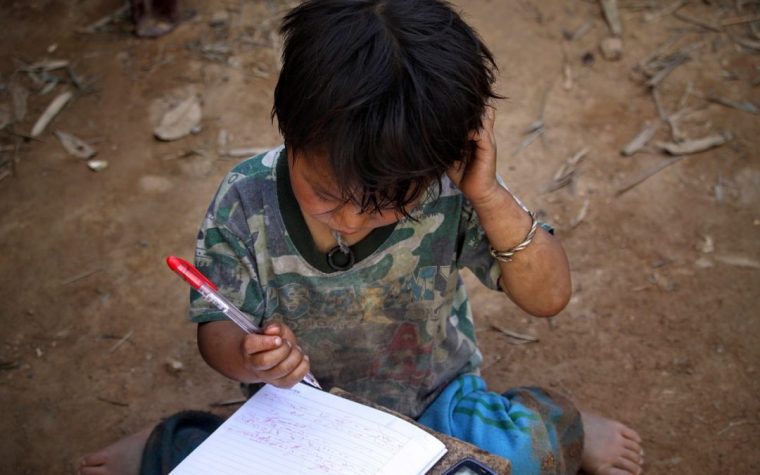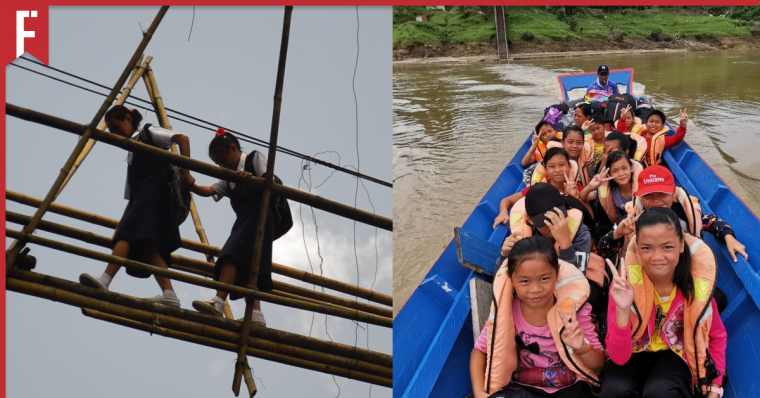
My dad used to tell me stories of how early he had to wake up just to cross rivers and bridges in order for him to get to school on time. He had always looked forward to going to school because he could imagine all the “obstacles and challenges” he would face. With that, he didn’t really think about how dangerous it could be if something were to happen to him and his friends while they were crossing the river or the bridges.
When I asked him if he was worried about any accidents happening, he always shrugged and said that it was just something that they (he and his classmates) had to do. There wasn’t any other way they could get to school. They lived in a rural area, a village far from town, and had no other means of transport to get to school so they just went with it.
This was over 50 years ago. It’s 2022 now and we’re still having the same problem? How bizarre is it that we can build large buildings and other infrastructure but are unable to provide children with a much safer and faster way to go to school?
Kids Shouldn’t Be Risking Their Lives Just To Get To School
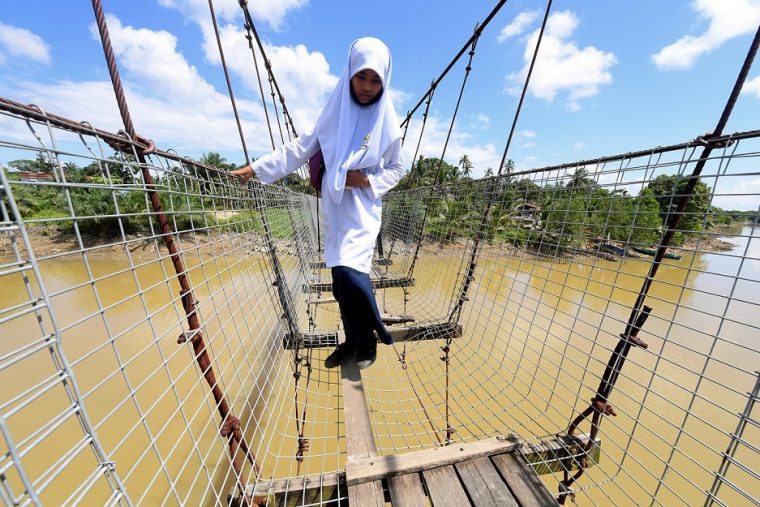
We always talk about how far the education system in Malaysia has come. From normal ways of teaching to a more hands-on learning approach, we’ve seen how Malaysia blossomed to include a lot more STEM in their lessons, a lot more inclusivity in terms of kids with disabilities, etc. We pride ourselves in being able to provide “quality education” to our young ones.
But what we don’t talk about is the students’ process of going to school, or if they even have the means to do so. Because in my opinion, what good are all those advanced education implementations if there aren’t any students to teach them to?
If your argument is “but students are going to school! Albeit risking their lives in the process of getting there, but they’re in school nonetheless and that’s what matters, isn’t it?” I pity you. Along with the whole talk of “when I was your age, I had to brave crocodile-infested waters and tiptoe around large whirlpools that could lead to my death to go to school.” Okay? And that wasn’t terrifying to you?
If you’ve already experienced how it was, why would you want your children or grandchildren to go through the same thing? Don’t we have the infrastructure and technology that we can build to make going to school easier for these kids?
There are so many cases of students who are forced to risk their lives in order to get an education. In 2020, eight students in Sabah’s interior district of Ranau were badly injured when the suspension bridge they depended on to get internet gave way and fell.
In Sarawak, students and teachers alike had to brave through crocodile-infested waters just to get to school. But when those facilities are taken away, how else do you expect them to be present and excel in their studies?
What people need to understand is that children in rural areas often underperform not because they are lazy or anything, but rather because of their life experiences. If the government is truly serious about improving the educational capabilities of their future leaders, measures should be taken to improve their journey into getting to school, not just the school curriculum.
How Accessible Is It To Go To School?
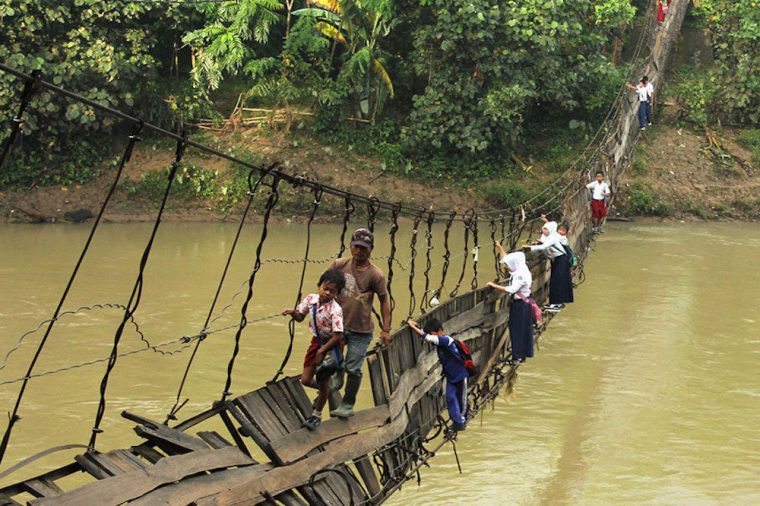
A country’s investment in its education system is an important measure of its commitment.
In 2019, Malaysia spent RM60.2 million of our national budget on education, making it the largest share of government expenditure that year. So really, I don’t think the problem here is the education system itself(although it is kind of a problem, let’s be real, but that’s a story for another day), more so than the transportation provided to get them there.
Back in 2012, the government made an education blueprint for Malaysia to follow up until the year 2025. It included a lot about the quality of Malaysian education, how the school curriculum has changed over the years and also quite a bit about the educational equality among both rural and urban societies in Malaysia, and how education should be accessible to both parties.
The fact of the matter is, is it really “easily accessible” if our kids are crossing deathtrap bridges, riding boats and avoiding other dangers just to get to school? Come on, man. Going to school shouldn’t have to be like going on a level in Temple Run.
This is just a suggestion, but why not build a proper walkway for students in rural areas to get to schools safely? Or at the very least provide them with transportation that’s tons safer than those suspension bridges that they built themselves.
Maybe even, I don’t know, build a school that’s a little bit closer to them. Why not all that instead of investing millions in making more highways and buildings that are just going to be left abandoned halfway through anyway?
It doesn’t really matter how good your education system is if you can’t get the kids to be in the classes to begin with. They can’t be expected to continue to find other death-defying ways to just be present in class. That’s just ridiculous.
Repercussions If This Continues
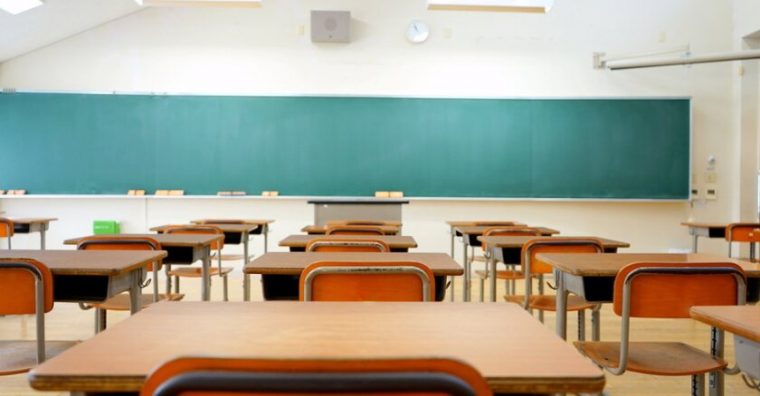
We’re way past romanticising the act of “demi ilmu” that students go through so much risk and pain. Why should they? Hasn’t the government enough funds already to make sure that their people get to comfortably seek for education?
As Malaysians, we’ve been stressing about the importance of education and success ever since we were born. But without proper means to receive an education, chances are they won’t even bother going at all. And that, my friends, would be a huge problem not just to them, but to us as a nation as well.
How are we expected to move forward as a developed nation when we ignore our brothers and sisters’ basic rights?
Imagine this: if you miss out on school for a day or two, you get to easily catch up with the notes your teacher gave you online and whatnot. But if you’re living in a rural area, where your only source of education is from going to school physically since you either have no internet connection or the technology to go to the classes, two days is a lot to miss.
Now imagine those two days extending to weeks because your only means to get to school is a suspension bridge that’s now broken and would take months to fix.
Are we going to continue being like this? You can’t be telling me that students in 2025 would still have to brave through a suspended death trap just to reach school.
The Malaysian government needs to step up their game. The NGOs can only do so much. Thinking that educational success solely depends on what effort the government put in school needs to be extended to the abilities and transportation it takes to actually get there.
The children have a long way to go from their houses in the village to their schools in the town, and they have to go through a lot of obstacles to make it there. You can’t just chalk it up to it being “oh when I was your age, I had to go through all that and didn’t complain.” When you were their age, you probably didn’t have the resources for it.
But are we really going to be using that same excuse in 2022? Do we not have enough resources to provide children with quality education as well as quality means to get that education? If your answer is yes, then maybe we’re doing something wrong.
Every Kid Should Have A Right To An Education
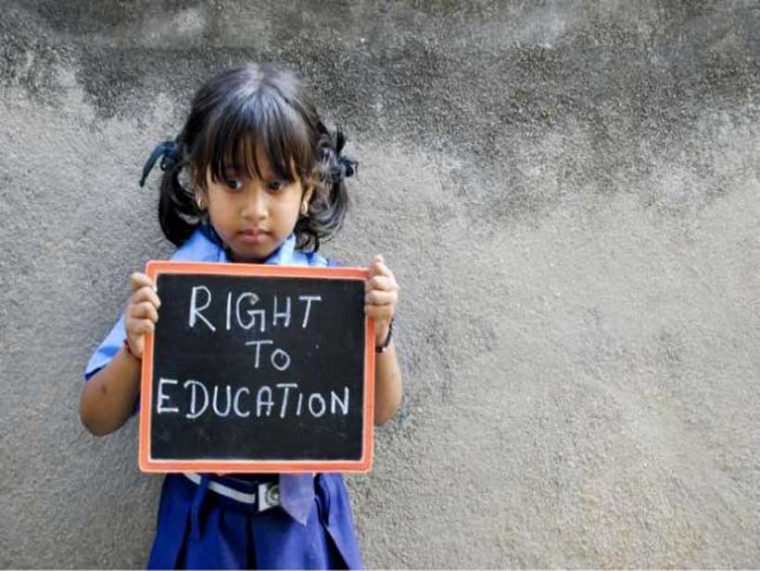
Students shouldn’t have to risk their lives just to get to school. Education should be a right that all children should have, regardless of race or social status.
Providing means to an education, be it making it more accessible to students, providing the technology to help make learning a smoother process and even making the journey for going to school an easy one, should be included in those rights too.
While we’re on the topic, some kids don’t get to have an education at all. And isn’t that something that needs to be addressed as well?
Why Can’t Refugee Kids Go to School Too?
